

PM DIRECTS SWIFT ACTION AGAINST RIOTERS, VOWS TO FOIL ATTEMPTS OF ‘SABOTAGING ECONOMY’
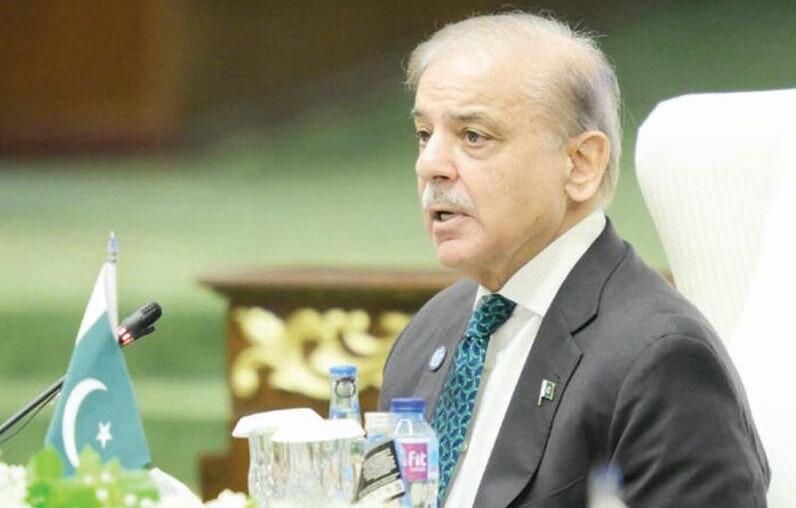
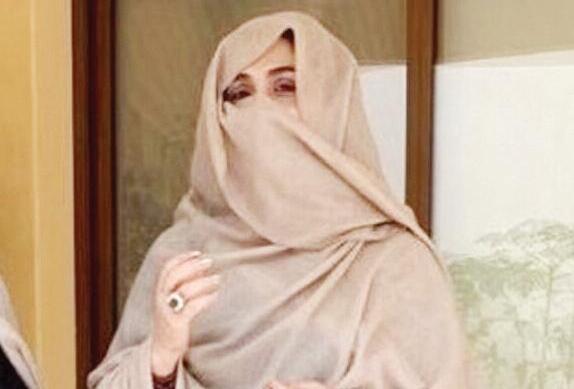
A seven-member constitutional bench of the Supreme Court on Monday rejected the government s petition seeking permission for military courts to announce case verdicts “Giving permission to announce verdicts would mean recognizing the authority of military courts ” remarked Justice Musarrat Hilali during the hearing Headed by Justice Amin-Ud-Din Khan the bench also includes Justice Jamal Khan Mandokhail, Justice Muhammad Ali Mazhar, Justice Syed Hasan Azhar Rizvi, Justice Naeem Akhtar Afghan, and Justice Shahid Bilal Hassan During the hearing the court questioned Khawaja’s counsel asking: “Do you recognise the con-
stitutional bench? In response the counsel said: I do not accept the jurisdiction of the constitutional bench Justice Mandokhail, addressing this remark, said: Then you may leave the courtroom The counsel further asserted that the current constitutional bench was nominated by the Judicial Commission At this, Justice Mandokhail inquired whether the 26th Constitutional Amendment had been invalidated? He was joined by Justice Mazhar who observed: You are employing delaying tactics At every hearing, some new request emerges If the 26th Amendment is annulled, judicial decisions will be safeguarded Even those detained under military courts desire this outcome,” added Justice Mazhar The bench then called Hafeezullah Niazi to the rostrum Justice Mandokhail asked him: Do you wish to proceed with this
case? Niazi affirmed: Yes I want to proceed Addressing him further Justice Musarrat Hilali asked him to consider those languishing in jails; you lack the legal standing to pursue this case Justice Mandokhail added: You are delaying proceedings because no loved one of yours is in custody ” Justice Mandokhail clarified that the SC was functioning under the constitutional amendment He explained: All benches are being formed under the new amendment and even the case concerning the amendment will be heard by a bench constituted under it Furthermore, Pakistan Tehreek-e-Insaf (PTI) leader Salman Akram Raja, who is a lawyer by profession, told the bench that he also had objections to certain parts of the judgment authored by Justice Munib Akhtar and would present his arguments on the matter
Maulana Fazl trashes gover nment proposals regarding seminar y bill
CHARSADDA S TA F F R E P O R T Jamiat Ulema-e-Islam (F) chief Maulana Fazlur Rehman on Monday rejected any proposed amendments to the Madrasah bill by the government stating that his party is unwilling to accept any of their suggestions Speaking at a press conference in Charsadda, Fazlur Rehman said that if the government were to present any amendments, they [JUI-F] would not even consider them He asserted that the government’s proposals would be rejected outright Fazlur Rehman also questioned why the President returned the Madrasah bill which had already been approved by the National Assembly and the Senate, with objections
He noted that if the President could sign other bills into law there should be no reason to send the Madrasah bill back with objections
Addressing the government s claims regarding the affiliation of madrasahs with the Ministry of Education, Fazlur Rehman clarified that the bill provides madrasahs with complete autonomy to affiliate with any federal institution whether under the 1860 Act or the Ministry of Education
The JUI-F chief also expressed concerns about attempts to create divisions among religious scholars and madrasahs over the bill
He stressed that there was consensus among all scholars and madrasahs regarding the bill
He mentioned that a significant meeting called by Mufti Taqi Usmani and the president of the Federation of Madrasahs is scheduled for December 17, where a unified decision on the bill will be made
Fazlur Rehman advised the government not to politicize the matter as the issue is about law and regulation He criticized the government s attempt to bring madrasahs
under an executive order which he described as an attempt to control them A day earlier, Maulana Fazlur Rehman has warned that if his party decides to march to the federal capital the bullets of opponents may run out but his party s resolve will not waver
We are not mummy-daddy types to flee Those in uniform and agencies should listen and stop threatening us Stay within your limits; no one is tougher than us,” he asserted He said his party had been deceived defrauded and betrayed about the religious seminaries bill
The agreement has been violated This is not a government of the people, but of the establishment We are not the ones rejecting Pakistan’s ideology the ‘establishment’ is You have chosen a path to destroy and dismantle Pakistan a country to which you have contributed neither its creation nor its preservation
Wafaq-ul-Madaris chief assures Mohsin Naqvi of suppor t on Madaris Bill
LAHORE S TA F F R E P O R T Maulana Fazl Raheem Ashrafi Patron-inChief of Wafaq-ul-Madaris pledged to Interior Minister Mohsin Naqvi that the religious education body would play a constructive role in resolving concerns over the proposed Madaris Bill The assurance came during a meeting at Jamia Ashrafia in Lahore on Monday Minister Mohsin Naqvi visited Jamia Ashrafia, where he inquired about Maulana Fazl Raheem’s health and conveyed his best wishes The two leaders engaged in a detailed discussion on the legislation aimed at regulating religious seminaries Maulana Fazl Raheem stressed the importance of avoiding politicization of madaris issues, advocating for a focus on practical solutions He proposed that Punjab should adopt a framework akin to the federal government’s
security development and prosperity


PUNJAB GOVT NETS RS. 2.7 BILLION THROUGH PROPERT Y AUCTIONS
Acquirer
FFC initiates acceptance period for its revised offer to acquire 35.6% of
Agritech
disclosed in October with the price subsequently revised upward from PKR 38 84 to PKR 39 05 per share in November The acceptance period, as per a notice to the Pakistan Stock Exchange (PSX), officially begins following the publication of the announcement on December 10 2024
in 1959 with its core operations based in Punjab Agritech specialises in producing urea and phosphate fertilisers
Despite its potential, AGL has faced financial and operational challenges in recent years, making it an attractive acquisition target for a stable and resource-rich entity like FFC
Limited is a continuation of FFC s October 2024 announcement to expand its market footprint FFC, Pakistan’s leading fertiliser manufacturer, aims to achieve a controlling interest in AGL a key producer in the country s fertiliser industry headquartered in Lahore The acquisition offer was initially
PR OFIT
M o N i to r i N g D e s k
The Power Division has approached the National Electric Power Regulatory Authority (Nepra) to amend the licensing regulations of power Distribution Companies (Discos) to facilitate private sector participation in the sell-off process
According to a news report, the amendments aim to align Supplier and Distribution Licenses with the federal government’s prescribed rules and eliminate regulatory inconsistencies that could deter potential investors As per the proposed changes, electric power suppliers may sell electricity to other suppliers through bilateral agreements However, if a Supplier of Last Resort sells power to another supplier the terms and conditions of the transaction including rates and charges must be approved by Nepra The Power Division highlighted that Nepra had issued Supplier and Distribu-
Established in 1978 Fauji Fertilizer Company Limited (FFC) is the largest urea producer in Pakistan The company operates under the Fauji Foundation’s umbrella and has been instrumental in supporting Pakistan’s agricultural productivity through its fertiliser offerings FFC is a key player in the export market and has diversified interests in renewable energy and agribusiness
Formerly known as Pak-American Fertiliser, Agritech Limited has its roots in one of Pakistan’s oldest fertilizer manufacturing facilities Incorporated
Analysts view the move as a strategic step to consolidate the fertiliser market, improve operational efficiencies, and potentially leverage AGL s assets to meet rising demand in Pakistan’s agricultural sector For Agritech the acquisition represents an opportunity to stabilize operations under the aegis of an established industry leader FFC has reiterated its commitment to transparency throughout the process, emphasising the strategic importance of the deal in meeting Pakistan’s growing agricultural needs
tion Licenses to all Discos except TESCO and SEPCO between April and December 2023 These licenses require the legal separation of supply and distribution functions by 2025 The Power Division argued that legal segregation should be subject to future developments in the electricity market as outlined in the National Electricity Policy (NE Policy) 2021 and the Eligibility Criteria Rules notified in September 2023 During a recent review panel meeting, concerns were raised about regulatory inconsistencies and their impact on private sector participation in Discos The panel noted that discrepancies between federal government rules and issued

PUNJAB GOVT INKS FIVE MOUS WITH CHINESE COMPANIES
53rd mar t yrdom anniversar y of Sowar Muhammad Hussain Shaheed, Nishan-eHaider, obser ved

The Chairman Joint Chiefs of
PR OFIT
Pakhtunkhwa Chief Minister Ali Amin Gandapur on Monday strongly criticised the National Accountability Bureau (NAB), stating that the institution is promoting corruption “NAB is being misused, and when institutions are misused what happens? Corruption
” said Gandapur while speaking at an event marking International Anti-Corruption Day We condemn corruption yet we are part of it Despite so many years, why hasn t corruption been eradicated from society? We haven’t corrected ourselves, nor have we held ourselves accountable The day we stop indulging in corruption it will end ” Gandapur
Islam prohibits making false accusations While everyone is talking about accountability nothing is happening on the ground
Book Review: A sghar Ali Tabassum –An ardent literatus
empathetic perspective on both prominent and ordinary individuals In contrast Aandhion May Charagh offers a stirring anthology of poetry that addresses the socio-political challenges of contemporary society while maintaining an underlying sense of hope In a literary landscape rich with voices Asghar Ali Tabassum stands out as an octogenarian whose lifetime of experiences informs his writing With a career that spans production planning and marketing in the chemical fertilizer industry, as well as journalism and poetry Tabassum has authored over a dozen books among them his voluminous autobiography MusafataiN Kya Kya His latest works Ek Phul Motiye Da and Aandhion May Charagh, further showcase his literary prowess Ek Phul Motiye Da is a collection of
Tabassum s previously published columns and essays in Urdu His writing style is marked by simplicity and sincerity infused with empathy nostalgia and an unwavering optimism Esteemed literary figures including Mujeeb-ur-Rahman Shami and Dr Inam-ul-Haq Javed have lauded Tabassum s earnestness in discussing a spectrum of topics from politics to historiography Shami commends his insightful observations on both prominent figures such as President Asif Ali Zardari and Imran Khan and ordinary individuals whose lives resonate with humanity
The portraits of these notable figures are rendered with a nonpartisan lens, showcasing their complexities while maintaining a humanitarian perspective Yet it is the vivid sketches of lesser-known characters such as the late Madam Jamila whom Tabassum likens to a jasmine flower that truly captivate This tender portrayal is imbued with deep love and respect, evoking a profound emotional response that lingers long after the page is turned In contrast Aandhion May Charagh presents a different facet of Tabassum s literary artistry This anthology of po-
etry, featuring both ghazal and nazm, resonates with a palpable sense of urgency regarding the socio-political climate Critics like Dr Riaz Majeed and Kausar Ali identify a strong undercurrent of patriotism and a poignant reflection on societal decay in Tabassum s verses His ability to articulate the struggles of the common man reveals his sensitivity to the world around him, positioning him as a poet of the people Among the highlights is Kangli Qaum ki Kahani (Story of an Impoverished Nation) a lyrical sequence that poignantly critiques the socio-economic decline faced by many The title of the anthology, much like its contents, reflects a search for hope amid adversity a theme that resonates deeply in today’s tumultuous world Ultimately Asghar Ali Tabassum s contributions to literature are not merely artistic expressions but are also calls to awareness and empathy His works encourage readers to reflect on the balance between beauty and truth, leaving a lasting impact that is both thought-provoking and moving In a world often overshadowed by chaos Tabassum s writing serves as a beacon of optimism reminding us of the resilience of the human spirit

04
COMMENT
Decoding the KSE-100 index
TH E KSE-100 index which tracks the performance of the largest and most significant companies listed on the Pakistan Stock Exchange, has crossed the 100 000 mark for the first time in history At first glance such milestones can be tempting to treat as mere numbers psychological markers that hold little real-world significance But the rise of the KSE-100 is more than just an impressive statistic; it is a symbol of the resilience of Pakistan’s capital markets and the optimism that is now slowly but steadily taking root in the country s economic landscape This is also the subject of this week s cover story of this paper ’s sister publication Profit
It is true that stock markets by nature are volatile and often unpredictable The KSE-100 is no exception In its 33 years of existence, the index has weathered economic crises political instability military coups and a series of external shocks from wars in neighboring Afghanistan to the ongoing cycles of IMF bailouts Investors have endured sharp crashes and celebrated euphoric rallies And yet despite all of this the Pakistani stock market has shown a remarkable ability to rebound often far more vigorously than many would have expected What has changed, however, is the growing body of data that now offers a clearer picture of what to expect from investing in Pakistani stocks For those who have been cautious or outright dismissive of the idea of investing in the local market, the evidence is now undeniable: over the long term the market has provided solid returns helping to build wealth for thousands of middle-class Pakistanis and giving them a stake in the country s future For decades skeptics of the market have pointed to its volatility as a reason to stay away “The market is too risky, they argue, too unpredictable While no one can deny that there are risks particularly in a country with such a turbulent history the question now is whether those risks outweigh the potential rewards The answer increasingly, seems to be no Investors who held firm through the inevitable downturns, who resisted the urge to panic sell when the market plunged have been rewarded with significant gains as the economy has moved through cycles of growth
It is important to acknowledge that the Pakistani stock market remains far from perfect There are still serious challenges that must be addressed issues such as a lack of investor confidence, insufficient regulatory oversight, and a financial system that is at times opaque But the story

Dedicated to the legac y of late Hameed Nizami Arif Nizami (Late) Founding Editor
M A Niazi Editor Pakistan Today Babar Nizami Editor
Profit
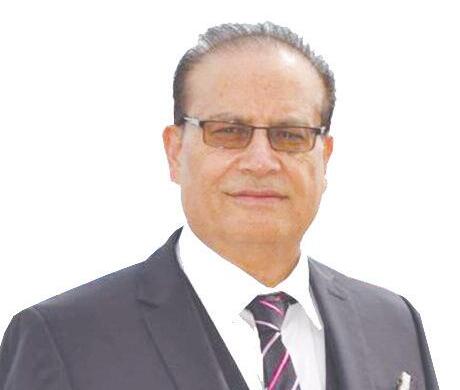
country Russia has long protected He suggested that just like Assad Russia might be forced out which he claimed could in the end be beneficial for them
However in his signature style Trump reiterated his isolationist stance, saying, THE UNITED STATES SHOULD HAVE NOTHING TO DO WITH IT THIS IS NOT OUR FIGHT LET IT PLAY OUT DO NOT GET INVOLVED!” Despite his rhetoric it was clear that the U S had been deeply involved in the Syrian conflict for years both directly and through support of various opposition groups and it continued to be a significant player in the region
which left its support for Syria’s Assad regime weakened This was a critical moment for the anti-Assad militias supported by Saudi Arabia the UAE and other Sunni powers in the Middle East These countries provided money and USA and its allies including Israel provided military aid, and superior guerrilla tactics and reconnaissance technologies, giving the militias an edge over the forces supporting Assad Without adequate funding ammunition and strategic guidance Assad’s regime and its affiliated militias lost momentum leading to a decisive advantage for the opposition groups backed by Sunni powers Donald J Trump, the USA President Elect in his latest statement released on his personnel account on X, gleefully broke the news of Bashar al-Assad’s imminent fall He announced that opposition fighters in Syria in an unprecedented move had taken control of numerous cities in a highly coordinated offensive and were now on the outskirts of Damascus seemingly preparing for a major push to oust Assad Trump pointed out that Russia, deeply involved in the ongoing war in Ukraine and having suffered significant losses, including over 600,000 soldiers, appeared incapable of halting this advance through Syria a
The situation in Afghanistan echoes the recent developments in Syria After the U S -led invasion in late 2001, NATO and its allies successfully removed the Taliban from power replacing them with Hamid Karzai s government followed by Ashraf Ghani in 2014 Despite massive investments of billions of dollars the training of the Afghan National Army (ANA), and the continued presence of NATO forces, the Afghan government struggled with corruption, insurgency, and internal divisions The Taliban gradually regained strength and by 2021 after the U S signed the Doha Agreement to withdraw troops the Afghan government quickly collapsed In August 2021 as the Taliban swept through the country, President Ghani fled, and the Afghan government crumbled The chaotic and rapid departure of both Ghani and U S forces marked a humiliating defeat, as the coalition’s two-decade effort to stabilize Afghanistan ended in disaster Despite the U S pouring resources into the country the regime failed to survive without the backing of foreign forces drawing comparisons to the weakening of Assad s regime in Syria amidst shifting global dynamics The Syrian war, which began in 2011, is a complex and devastating conflict involving a mix of internal and external actors pursuing divergent goals Bashar al-Assad s government supported by Russia Iran and Hezbollah seeks to maintain power while opposition forces range from moderate groups to ex-
The situation in Afghanistan echoes the recent developments in Syria After the US-led invasion in late 2001, NATO and its allies successfully removed the Taliban from power, replacing them with Hamid KarzaiÊs government, followed by Ashraf Ghani in 2014. Despite massive investments of billions of dollars, the training of the ANA, and the continued presence of NATO forces, the Afghan government struggled with corruption, insurgency, and internal divisions.
Breaking the plastic ceiling: A global call for environmental justice
Doctors in limbo

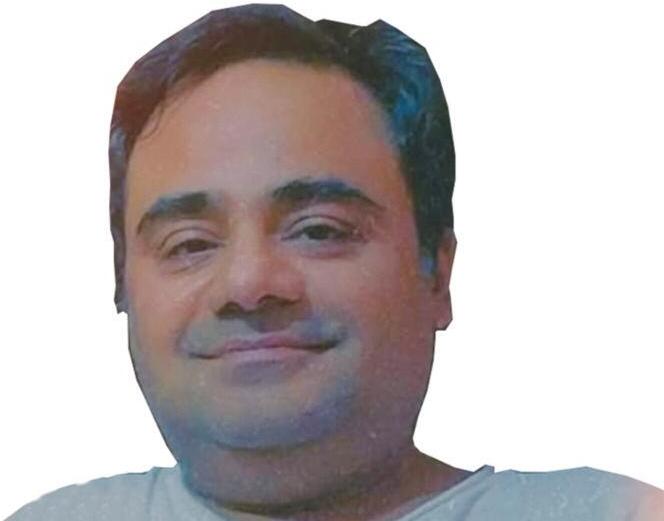
Troot causes of plastic pollution: unchecked fossil fuel extraction and overproduction of virgin plastics
This issue is not confined to the halls of international negotiations it has immediate, visible impacts on communities around the world, including in Pakistan Karachi, once known as the “Queen of the East ” exemplifies the devastating consequences of plastic mismanagement
The city generates 16 500 tons of solid waste daily yet only a fraction is collected and processed, leaving the rest to clog streets, pollute waterways, and pose serious health risks With its population enduring unlivable conditions and ranking among the least livable cities globally Karachi reflects the broader global crisis where inadequate infrastructure and apathy exacerbate environmental degradation The Sindh Solid Waste Management Board set up in 2014, has largely failed to address the growing challenges, underscoring the urgent need for systemic reforms
This local perspective resonates with the global context where critical gaps persist in
proposed measures The draft document issued by INC-5 chair Luis Vayas Valdivieso highlights potential steps such as regulating plastic products and establishing financial mechanisms for developing countries However, it stops short of mandating binding global targets for reducing primary plastic polymers or setting definitive standards for chemical safety and human health protections The reliance on voluntary actions risks enabling nations and industries to sidestep meaningful commitments, perpetuating the environmental and social injustices experienced by cities like Karachi Industrial stakeholders, particularly from the petrochemical and chemical sectors have capitalized on these ambiguities While professing support for a circular economy their opposition to production caps underscores a prioritization of profits over planetary health The International Council of Chemical Associations (ICCA), representing these industries, promotes waste management solutions as an alternative to curbing production This narrative shifts responsibility onto consumers and governments while enabling continued reliance on virgin plastics Similarly, the automotive industry s defense of plastics as indispensable for electrification ignores the potential of alternative materials This industrial pushback not only undermines the treaty’s objectives but also exacerbates inequities in the negotiation process Indigenous and frontline communities who disproportionately bear the brunt of plastic pollution, have been sidelined, while industry representatives exert disproportionate influence This imbalance compromises the treaty’s credibility and risks marginalizing voices crucial for equitable and effective solutions As the clock ticks toward the treaty deadline frustration among high-ambition delegations is mounting Panama s coalition, supported by over 100 nations, has pushed for numeric reduction targets, but resistance from entrenched interests threatens to water down these proposals Juan Monterrey Panama’s
Head of Delegation expressed dismay at the lack of compromise calling for nations opposing progress to meet others halfway Meanwhile, Anthony Agotha of the European External Action Service criticized the futility of addressing plastic waste without tackling production likening it to “mopping the floor when the tap is open ” Despite the uphill battle there are glimmers of hope Corporations like Nestlé and Unilever, part of the Business Coalition for a Global Plastics Treaty, have pledged support for reducing single-use plastics and hazardous chemicals Yet, their hesitance to endorse binding production caps reflects the broader challenges of reconciling corporate interests with environmental imperatives Without enforceable commitments such pledges risk being more performative than transformative
This industrial pushback not only undermines the treatyÊs objectives but also exacerbates inequities in the negotiation process. Indig enous and frontline communities, who dispropor tionately bear the brunt of plastic pollution, have been sidelined, while industr y representatives exer t dispropor tionate influence . This imbalance compromises the treatyÊs credibility and risks marginalizing voices crucial for equitable and effective solutions.
Choking on neglect
Qamar Bashir

From fear to hatred: The evolution of anti-Muslim sentiment post 9/11
IS L A M O P H O B I A is the fear, hatred, and discrimination directed at Muslims or the Islamic faith in general
The word was first used in French literature as Islamophobie in the early 20th century to describe anti-Muslim attitudes and practices It gained popularity in English in the late 1990s Organized protests against Islam and Muslims increased after the 9/11 attacks on the United States A transnational anti-Islamic movement resulted from this Prior to 9/11 there was Islamophobia which had its roots in historical conflicts including colonialism, the Crusades, and Orientalist portrayals of Muslims as the other However, 9/11 greatly inflame these prejudices since despite being carried out by a small extreme group the acts were quickly and extensively linked to Islam The attacks were framed as a battle of civilizations with the West versus an allegedly monolithic Muslim world, in large part to political rhetoric and media narratives
These sentiments were fostered by notable individuals and organizations Stereotypes were strengthened when U S President George W Bush described the War on Terror as a crusade and when media outlets regularly connected terrorism and Islam The issue was made worse by politicians and commentators’ increased use of divisive language which targeted Muslim people and communities around the world with distrust
Attacking Islam and Muslims became a popular pastime for the radio television and print media in the wake of 9/11 Unfortunately, the 9/11 attacks were used as a pretext to inflate anti-Muslim sentiment and hide it behind a false sense of patriotism It is now socially acceptable in the US to disparage Muslims Does the state de facto have a policy of Islamophobia?
The significant aspect of the sudden rise in xenophobic sentiment in the US is that it was fundamentally construed as patriotism According to Salaita12, necessary patriotism’s most important characteristic is its fundamental connection to xenophobia It is
more disassociated from xenophobia in that it incorporates xenophobic behaviors and sentiments into patriotism rather than originating from it For the most part, neither academia nor the American media were able to encourage appropriate patriotism Following 9/11 xenophobia increased in Europe as well Mosques schools and cultural institutions were among the targets of attacks against Muslim cultural and religious icons This included more serious issues like bomb and death threats, as well as more general threats like vandalism and material damage Governments worldwide implemented policies targeting Muslim populations under the guise of national security In the U S the Patriot Act expanded surveillance and detention powers, disproportionately impacting Muslim individuals Similarly, programs like the National Security Entry-Exit Registration System (NSEERS) required Muslims from specific countries to register with immigration authorities fostering a climate of fear and alienation The way Muslims are portrayed in the media frequently reinforces unfavorable preconceptions by linking them to extremism and terrorism Muslims are regularly portrayed as villains in Hollywood films and television series which feeds popular mistrust and anxiety These prejudices influence opinions and policies regarding Muslim communities by permeating public discourse From intrusive airport screenings to prejudice in the workplace and in schools, Muslims have faced more scrutiny in day-to-day
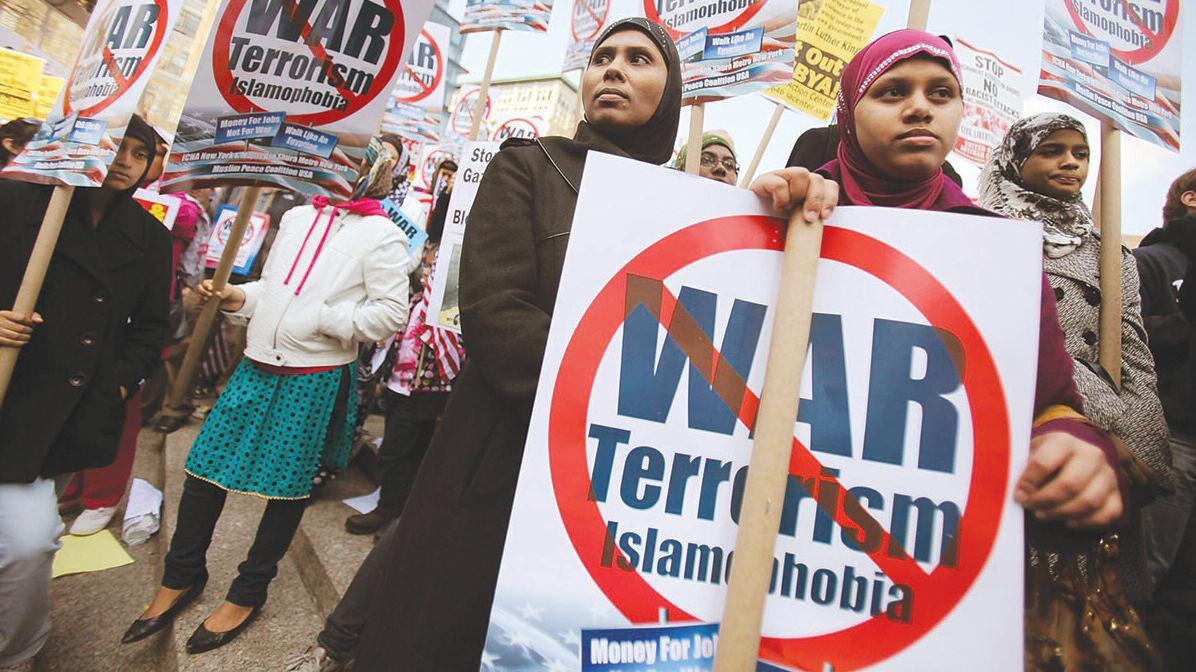
life Muslim women have been especially susceptible to physical and verbal assault, especially when they are wearing hijabs Since the founding of the United States the American political system has been extremely hostile to immigrants (Behdad 2005) This is not to say that immigrants have not succeeded in various ways throughout the history of the United States or that hospitable acts do not occur frequently Anti-Arab racism is best understood in a continuum that recognizes
Following 9/11, Islamophobia ser ves as a sobering reminder of the perils of equating the behavior of a small number of people with the entire faith. Even if there has been progress in combating these prejudices, Islamophobia still exists, which emphasiz es the necessity of ongoing attention to detail and group effor ts. Upholding the values of justice , equality, and human dignity for ever yone is crucial as nations struggle with the challeng es of multiculturalism and security Only then would it be possible to heal the wounds of 9/11 and imagine a more inclusive future .
H a t e , s p e e c h a n d t h e s i l e n c i n g o f M u s l i m s
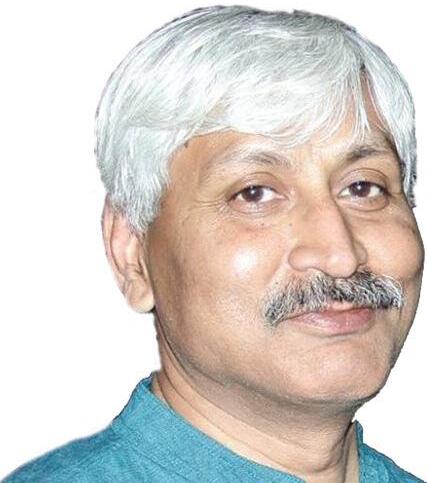

Hadein wo kheinch rakhi hain haram ke pasbano ne ke bin mujrim bane paighaam bhi pahuncha nahi skta
HO W could Theodore Adorno, a keen observer of the rise of fascism in Germany and Europe and the theoretician behind the concept of the “Authoritarian Personality ” be connected to our own Urdu poet Majaz?
While we were trying to process the most recent hounding of Nadeem Khan, national secretary of Association of Protection of Civil Rights (APCR) by the Delhi police, a friend of mine shared an article written by Sharjeel Imam, who will complete years in jail for his role in the anti-Citizenship Amendment Act (antiCAA) movement He invokes Majaz Hadein wo kheinch rakhi hain haram ke pasbano ne ke bin mujrim bane paighaam bhi pahuncha nahi skta (The guardians of the holy have drawn lines so strict that no message can pass without making a criminal out of the messenger) ” The messenger of the bad news is a criminal
While reading him and thinking about the persecution of Nadeem I recalled Theodore Adorno In this very context he writes: The hangman gets upset when someone talks about the noose in his house The hangman alleges that it is an attempt to create resentment against him To defame him ” I recalled Adorno while reading about the FIR against Nadeem Adorno kept coming back again and again I have forgotten how many times in these 10 years these lines from him have come back to me Repetition is our fate Nadeem is accused by the Delhi police of creating enmity and hatred in society by documenting and exhibiting the hate crimes that have been committed in the country for the last ten years That Pahelu Khan or Junaid or Mohsin Khan or Rakbar or scores like them were lynched is a fact But the police feel that to talk about them is an act of spreading hatred That Narendra Modi Amit Shah Adityanath Himanta Biswa Sarma and other leaders of the Bharatiya Janata Party (BJP) keep giving either dog whistles or brazen hate speeches against Muslim is an undisputed fact If you mention it, however, you’ll be accused of harbouring hatred against them and inciting hatred towards them among Muslims That is what Nadeem is accused of How can he talk about the noose in the house of the hangman? By doing it he is creating resentment against them The police are fearful that it might break the country Before the persecution of Nadeem started, we learnt that a criminal case had been filed against Mohammed Zubair the famous fact checker journalist What was his crime? He was drawing the attention of the law and order authorities towards the hate speeches given by Yati Narsinghanand The fact of the
hate speech given by Yati is undisputed It is not denied that Yati spewed venom But someone took offence that the target of his hate act one individual from the Muslim community was complaining about it How dare he? Was he not trying to mobilise the anguish of his community against Yati who was threatening violence against Muslims? Zubair, according to the petitioner, by pointing at the hate act of Yati was creating resentment against him This act has hurt the supporters of Yati They do not disagree that he spreads hatred against Muslims that he calls for violence against them But they would not like a Muslim to talk about it or protest The law and order authorities concurred with the petitioner against Zubair They say that his act of calling for action against the violent speech of Yati has hurt the sentiments of his followers Hurting the sentiments of a population is a crime But only when the hurt population is Hindu The state went hundred steps ahead and alleged that by talking about the hate act of Yati Zubair was actually attacking the integrity and the sovereignty of the country The call for justice by Zubair became a seditious act This is not new for Zubair He was jailed two years ago for calling out hate mongers The courts kept him in jail and he had to move to the top court which then gave him bail
Let us try to understand the anger of the BJP leaders and followers of the BJP against Nadeem and Zubair They say that by talking about the atrocities against Muslims, they are inciting Muslims Violence against Muslims or hate campaigns against them is not a law and order issue nor does it in any way endanger the integrity of the nation But if you speak about this fact then there is a distinct fear of unrest among Muslims which will then break the unity of India That is how any complaint from a Muslim and any demand for justice from Muslims becomes antinational, seditious The state will go to any extent to silence these justice-seeking Muslim voices
The assumption is that the hate speeches of Hindu figures do not pose a threat to the unity of India because they do not target the nation And Hindus are by nature non-violent The hate speeches are just that: speeches which do not mean actual violence They are innocuous They can be seen as an expression of anger and frustration among Hindus Moreover the Delhi high court said if these hate speeches are given with smile on your lips they certainly are not hate acts Another argument is that it is permissible for the purpose of mobilisation of people in your favour in times like elections, etc Similarly, in the case of one Dharma Sansad where Hindus were asked to take up arms , the affidavit of the Delhi police stated that the event and speeches were about empowering one’s religion to prepare itself to face evils that could endanger its existence There is freedom of speech in this country and such violent speeches by Hindus are only an exercise of that right
The police and the courts, in most cases, seem to refuse to accept that Hindus can ever mean violence even if they say so
are
to
them can never break the nation I was struck by the observation of a leading political scientist, who noted that the communalism of the Rashtriya Swayamsevak Sangh (RSS) is not directly subversive as it seeks to unify the nation whereas Muslims are by nature more prone to excitement Moreover they are not allowed to speak for themselves or even defend themselves because it is separatism They, unlike Hindus or RSS, are not interested in the unity of India So, any act of speaking for themselves can divide and break the nation According to this point of view Hindus even when violent do not harm the integrity of India but if Muslims take recourse to protest it has the potential of breaking up India So Hindus and Muslims would not be judged by the same standards Hindus speak against Muslims only to save themselves with no real intent to do violence but if Muslims speak about it there is a potential provocation of real violence The Delhi police has argued that Umar Khalid by criticizing the CAA raising awareness among Muslims about its inherent dangers, and providing them with a language to protest, was inciting unrest and provoking violence The very figure of Umar, a Muslim signifies violence even if he does not utter a word calling for violent action When he says peace he actually means violence This is what the courts also felt
Nadeem is the national secretary of APCR which documents the acts of hate and violence against Muslims It fights legally for persecuted Muslims Is all this illegal? He as the head of the APCR talks about it Does he have a right to do that or not? Or he can’t be allowed to speak for Muslims and organise legal fights for them?
Does Zubair have a right to alert police about the hate acts by the Hindutvavadis or not? Do Muslims have a right to speak and agitate for justice or not? Do they also have a right to tell people about the dangers of such hate-mongers being allowed to be free or not?
The state, and often the courts as well, seem to feel that Muslims’ insistence on justice is excessive This sentiment was echoed by the top court when it reprimanded Zakia Jafri for pursuing justice for her husband who was killed in the 2002 Gujarat pogrom The court s remarks were scathing: How can she keep the pot boiling? It even went so far as to suggest investigating the larger conspiracy behind Zakia Jafri’s quest for justice simply because she is a Muslim woman Furthermore the court questioned the involvement of Teesta Setalvad a Hindu activist who supported Zakia Jafri s fight for justice The court s implicit suggestion was that a Hindu advocating for Muslims must be part of some larger conspiracy
This is the argument behind the FIRs against Nadeem and Zubair The murderer says that you cannot talk about my act of murder It shows me in a poor light It hurts me It turns people against me I am after all murdering you for the sake of my community my nation By speaking against it you speak against the nation The hangman s house muffles the
or
or violence against
or
Kashaf Ghazal

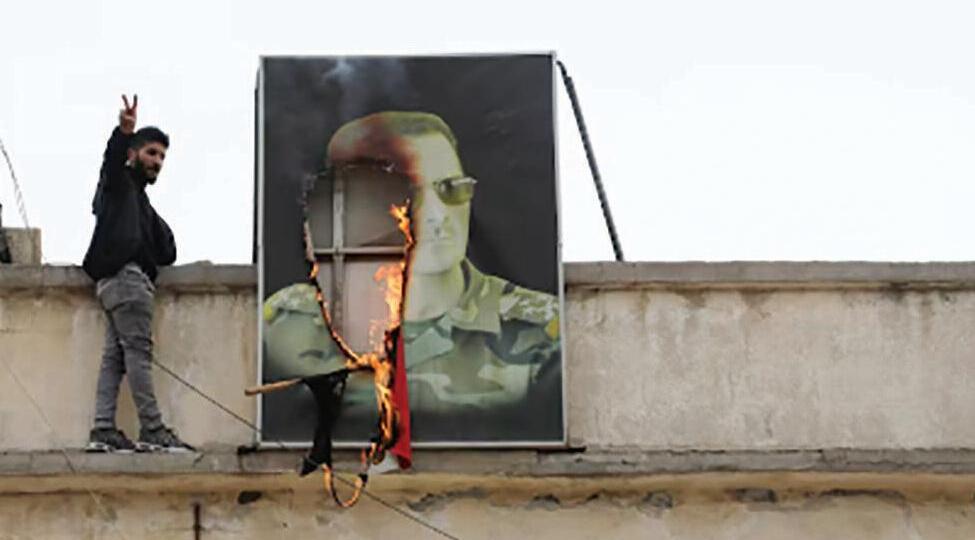
Trump to end bir thright US citizenship

The Political Bureau of the Communist Party of China (CPC) Central Committee on Monday held a meeting to analyze and study the economic work for 2025 and arrange Party conduct and anticorruption work
The meeting was chaired by Xi Jinping, general secretary of the CPC Central Committee This year is crucial for achieving the objectives and tasks laid down in the 14th Five-Year Plan (2021-2025) and the economic operation has been generally stable with progress made The country’s economic strength, scientific and technological capabilities and composite national strength have continued to improve according to the meeting
The main goals and tasks for economic and social development in 2024 will be successfully accomplished it said For a sound economic performance in 2025 more proactive and impactful macro policies should be adopted It urged implementing a more proactive fiscal policy and a moderately loose monetary policy
It is necessary to enrich and improve the policy toolkit strengthen unconventional counter-cyclical adjustments intensify the coordination of various policies and make the macro regulation more forwardlooking, targeted and effective, the meeting noted
The country should vigorously boost consumption improve the investment efficiency and expand domestic demand on all fronts it said
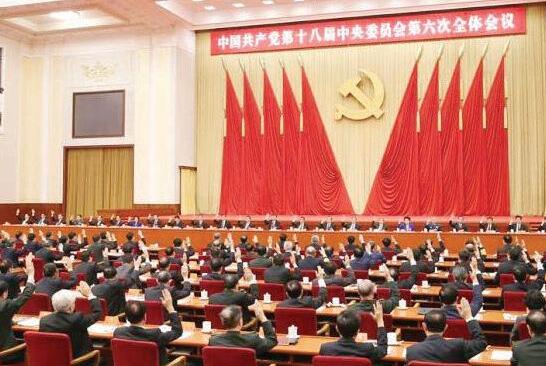
The meeting emphasized fostering new quality productive forces driven by scientific and technological innovation, developing a modernized industrial system, giving play to the leading role of economic system reform and ensuring signature reform measures are effectively implemented
The country should expand high-standard opening up and stabilize foreign trade and investment, as well as effectively prevent and defuse risks in key sectors to ensure no systemic risks arise according to the meeting
It also called for promoting the integrated development of urban and rural areas, advancing major regional development strategies, accelerating the green transition in all fields of economic and social development and increasing efforts to safeguard and improve people s livelihood
The Party s leadership over the economic work must be strengthened to ensure that the de-
cisions and arrangements of the CPC Central Committee are faithfully executed said the meeting
It also discussed plans to improve Party conduct and fight corruption Disciplinary inspection and supervision bodies must maintain a tough stance against corruption and regular oversight and inspection should cover the implementation of major reforms, it said Continued efforts must be made to tackle misconduct and corruption that directly affect people’s lives and ensure the general public will better and more equitably benefit from the achievements of reform and development according to the meeting
Prior to the meeting, Xi chaired a meeting of the Standing Committee of the Political Bureau of the CPC Central Committee which heard a briefing on the work of the CPC Central Commission for Discipline Inspection (CCDI)
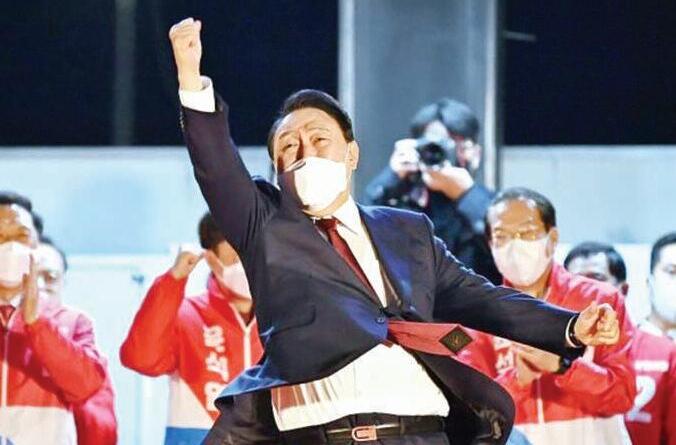

GOVERNMENT PUSHES FOR PIA PRIVATISATION
AMID RENEWED EUROPEAN ACCESS
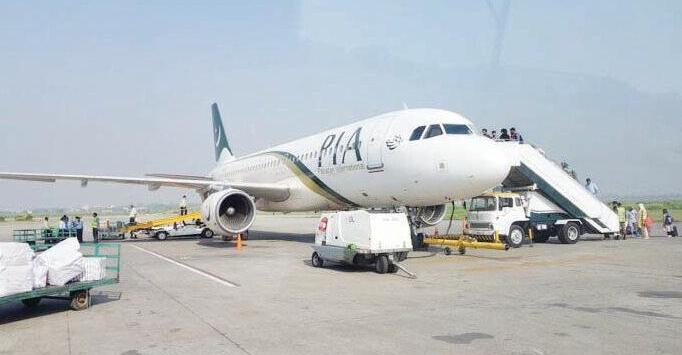
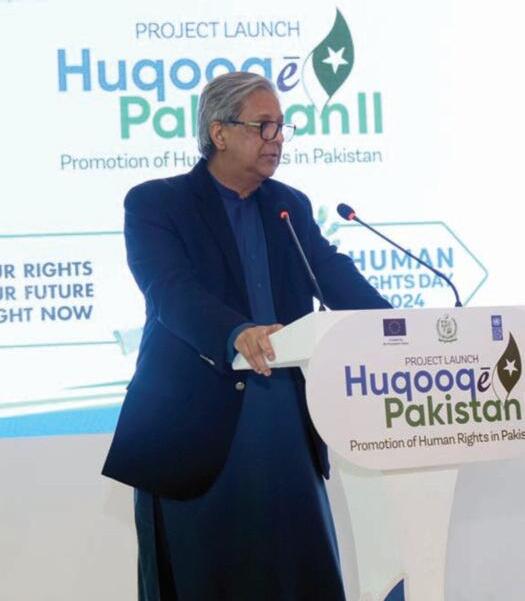
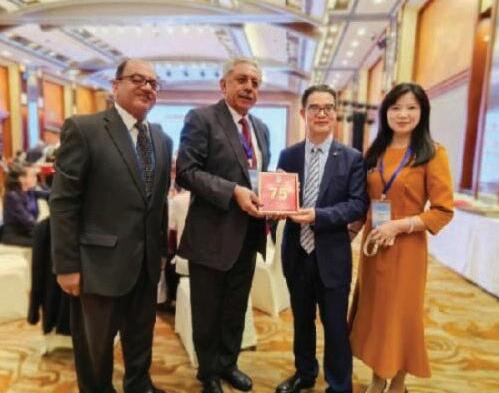
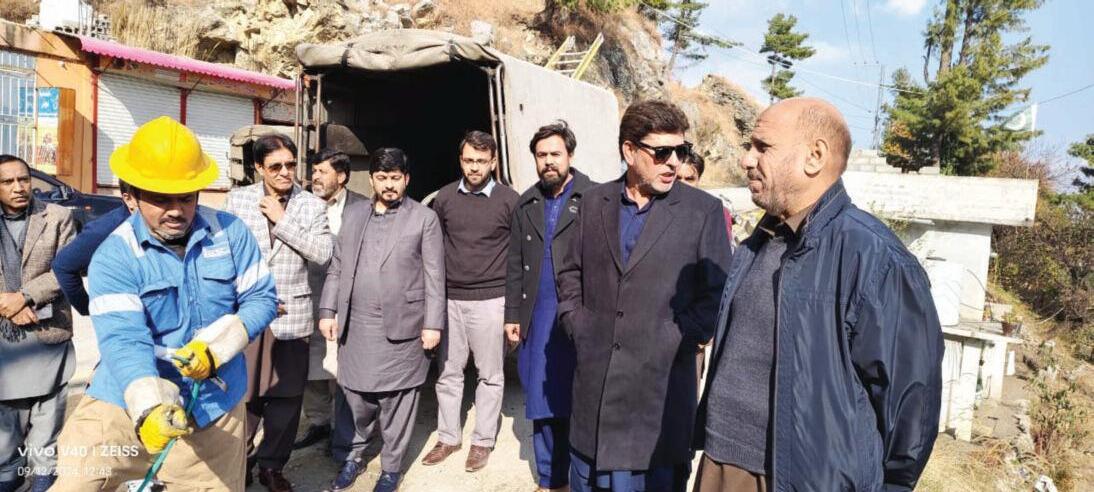
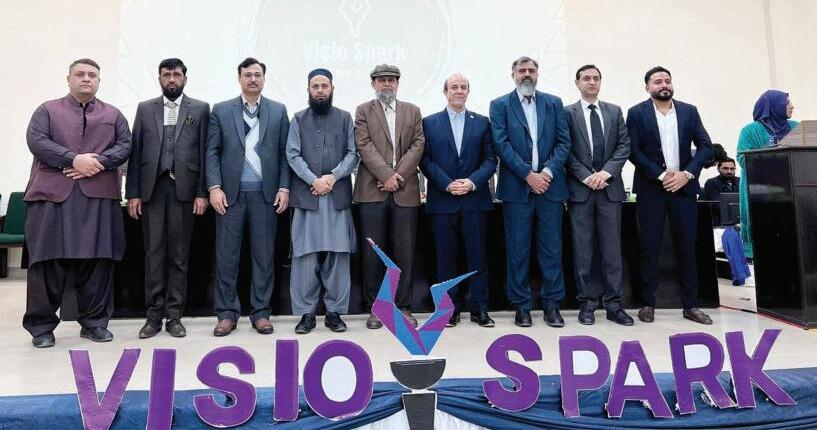
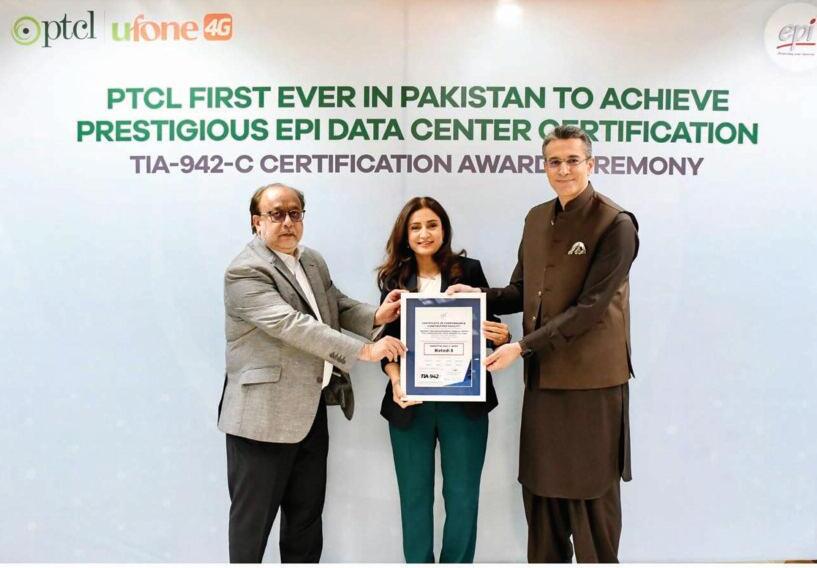
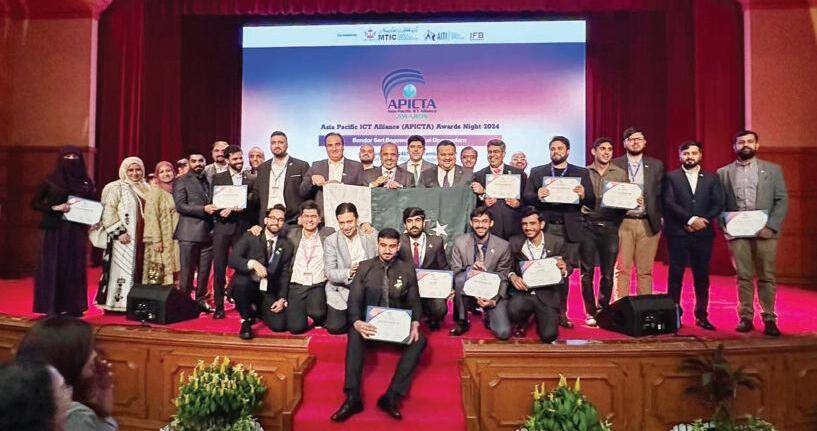

T I T H R E AT E N S C I V I L D I S O B E D I E N C E
R I V E ‘ I F D E M A N D S N O T M ET ’
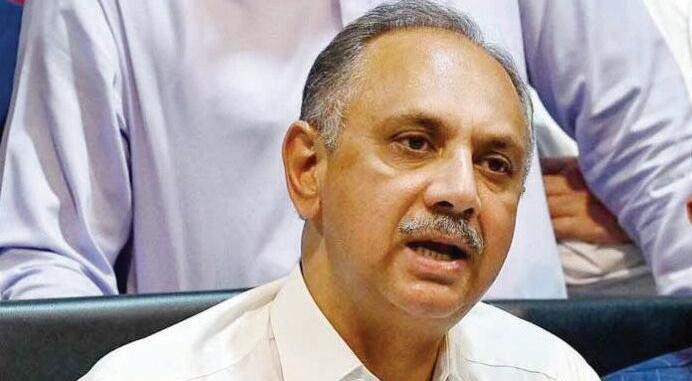
Full Cour t Bench: CJ
Afridi passes the buck to constitutional bench
Chief Justice of Pakistan (CJP) Yahya Afridi has passed the buck to the committee of constitutional benches for the formation of a full court to hear petitions challenging the 26th Constitutional Amendment A three-judge committee, led by Justice Aminuddin Khan and comprising Justices Muhammad Ali Mazahar and Jamal Khan Mandokhail will decide the total number of members for the constitutional bench hearing such petitions Interestingly the committee itself is the creation of the amendment which is being challenged The judges for constitutional benches were selected by government representatives during the first meeting of the Judicial Commission of Pakistan (JCP) Likewise, two members of the constitutional bench have also supported the government’s suggestion to nominate Justice K K Agha as head of the Sindh High Court s constitutional bench The government it seems is completely satisfied with the Supreme Court s constitutional bench, especially the head Justice Aminuddin A debate also continues as to whether CJP Afridi could have formed a full court to hear petitions against the 26th Constitutional Amendment Justice Syed Mansoor Ali Shah in his recent letter noted that Clause 3 of the newly-added Article 191-A of the Constitution bars the hearing of matters specified therein by any bench of the Supreme Court other than a constitutional bench, but does not bar the full court of the Supreme Court from hearing any matter, including petitions filed under Article 184-3 of the Constitution “The distinction between the full court and the benches of a court is well established and explicitly recognised in Article 203J(2)(c) & (d) of the Constitution he wrote However if your lordship has any doubt regarding this constitutional position, the same may also be judicially decided by the
S TA F F R E P O R T
Chief Justice of Pakistan Justice Yahya Afridi has decided to undertake visits to far-flung districts in a bid to ensure the swift delivery of justice and address the challenges faced by the judiciary The Supreme Court announced this initiative on Monday as part of ongoing efforts to improve district courts and respond to pressing issues
The Chief Justice’s decision aims to strengthen the judicial system at the grassroots level particularly in remote regions
The focus would be on improving the efficiency of the district judiciary and addressing local
challenges
On his first visit to Gwadar, the Chief Justice met with District and Session Judges from areas including Turbat Panjgur and Chaghi
During the meeting he reassured the judges of the court s commitment to resolving their issues
The Supreme Court statement highlighted that Justice Yahya Afridi, the Chief Justice of Pakistan, reaffirmed the importance of preserving the dignity of judicial officers and maintaining the respect of the judiciary nationwide
Addressing judicial reforms a meeting chaired by Justice Afridi in Gwadar discussed key matters related to improving the judicial system
The meeting also approved the
establishment of a sub-committee for Balochistan to visit various jails and propose comprehensive reforms for the prison system Justice Hashim Khan Kakar
Chief Justice of the Balochistan High Court and Justice Abdullah Baloch
Monitoring Judge for Prisons were also present at the meeting
The reform committee aims to improve the judicial system, offering a more efficient framework for addressing issues at both the district and provincial levels
The Chief Justice s initiative underscores the growing importance of addressing judicial challenges in Pakistan s more remote areas, ensuring that every region has access to timely and effective justice
KARACHI S TA F F R E P O R T
Jamaat-e-Islami (JI) has announced plans for a Million March in Islamabad on December 29 calling for action against Pakistan s worsening economic and political crises Addressing a press conference, JI Ameer Hafiz
Naeem-ur-Rehman criticized the country’s governance, drawing comparisons to Syria under Bashar al-Assad where people’s rights were denied He argued that Pakistan s resources are controlled by a small elite creating widespread economic disparity Rehman dismissed the recent
stock market surge as a fake rally, accusing influential players of manipulating the market for personal gain while ignoring systemic economic issues He emphasized the need for structural reforms to address taxation resource distribution and public welfare Highlighting Karachi s dire state under the Pakistan People s Party (PPP), Rehman criticised the ongoing water crisis and land occupation issues He accused PPP of exploiting Sindh s resources without delivering basic services despite 17 years of rule in the province Rehman also lambasted the government for its privatisation policies, particularly regarding
Pakistan International Airlines (PIA) and K-Electric, accusing authorities of corruption and inefficiency He highlighted that privatisation had failed to reduce energy costs or improve services further burdening the public
The JI leader called for comprehensive reforms in the energy sector to reduce electricity costs and boost exports, asserting that Pakistan’s economy could only recover through structural changes not empty rhetoric
The Million March aims to unite citizens in demanding accountability and urgent action from the government to address the nation’s challenges
mineral oils (MOAH MOSH) genetically modified organisms (GMOs), and other toxic contaminants
The effects are already being seen Following the raids DPP inspectors and entomologists are reportedly reluctant to inspect and clear shipments at the port This has caused delays in rice exports with one ship destined for Indonesia currently awaiting clearance It is a typical case of over-the-top action resulting in a scared bureaucracy refusing to work
The apprehension among DPP employees stems from fears of facing similar legal actions as the consignment approval procedures remain unchanged from those previously practiced
Adding to the tension, authorities are allegedly pressuring DPP inspectors to issue phytosanitary certificates based on thirdparty reports from SGS without conducting mandatory sampling or tests for Maximum
Residue Levels (MRL) Aflatoxin Genetically Modified Organisms (GMO) or Mineral Oil Experts assert that the involvement of third-party agencies like SGS in this process is not permitted under existing regulations When contacted an official source within the DPP confirmed that inspectors had been directed to clear consignments at the port on Monday morning However the official acknowledged the employees concerns, stating that the prescribed procedures to prevent interceptions were still not being fully adhered to Pakistan’s rice exports The arrests come at a disastrous time for Pakistan s rice exports In the financial year 2023-24 Pakistan saw a boom in its rice trade because India, otherwise the world s largest producer and exporter of rice, had placed a ban on exporting its rice to control prices domestically Pakistan had filled in some of this void because of the high quality of rice produced in the sub-continent Overall the European market has proven a rich area for Pakistani rice and the Indian exporters have failed to capture it in the same way In 2019/20 Pakistan s exports to the EU grew to over 250,000 metric tonnes while those from India fell to under 120 000 metric tonnes During the
Back in
Shehbaz Sharif had formed a committee to
vestigate the
consignment
in
Union (EU) The primary task of
of
committee is to investigate the reasons
the non-compliance with food
standards that have led to rice interceptions in EU countries The main force being investigated by this committee was the DPP which has failed to enforce these standards which has negatively impacted Pakistan s external trade The stated aim was to identify responsible officers within the DPP who issued inaccurate phytosanitary certificates and investigate claims that DPP employees created monopolies by selectively licensing fumigation services for personal gain The inquiry committee, led by retired bureaucrat Shahid Ali Khan, was formed to investigate the interceptions However, critics note that the committee lacked experts in sanitary and phytosanitary (SPS) measures While food safety does not fall under the DPP s mandate which primarily han-
dles biosecurity the committee alleged that 46 of the 72 interceptions were linked to phytosanitary certificates issued by DPP officers without proper documentation How the arrests played out Sources reveal that prior to the raid on the DPP office FIA Karachi also raided the official residence of the DPP Director General Dr Muhammad Tariq Khan Allegedly conducted without a search warrant or registered case the raid involved FIA personnel, including two female sub-inspectors, and occurred late Thursday night The team, led by Malik Junaid Hassan, Inspector of the FIA Corporate Crime Circle reportedly harassed Dr Khan’s family while conducting a search of the premises
The FIA s actions stem from a directive issued by Prime Minister Shehbaz Sharif during a high-level meeting on Thursday evening The directive followed a report by the Economic Minister at Pakistan’s Embassy in Brussels Omar Hameed highlighting 72 interceptions of Pakistani rice shipments at EU ports The Prime Minister ordered arrests of those responsible for issuing phytosanitary certificates without proper verification of food safety risks
The FIA’s case centers on procedural lapses by DPP officers According to the FIR registered by the FIA’s Anti-Corruption Circle in Karachi (FIR 40/2024) officials bypassed required procedures such as field inspections, lab tests, and compliance verification, when issuing phytosanitary certificates The accused officials include Fakhar-uZaman Muhammad Waleed Mukhtar Shahzad Salman and Shehzad Salman who were previously implicated in FIA FIR
4/2024 dated 23-02-2024
